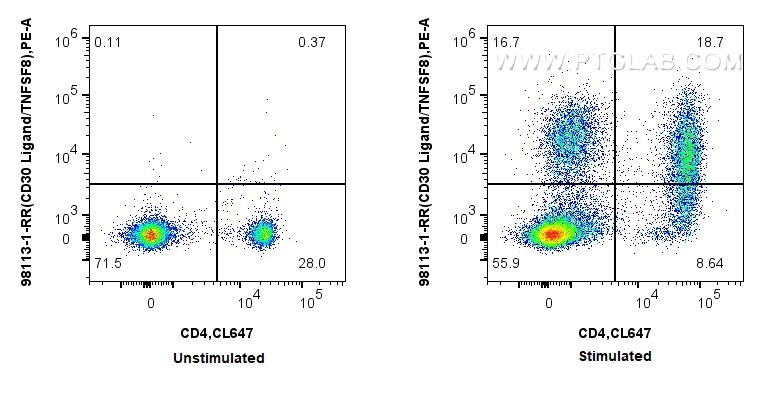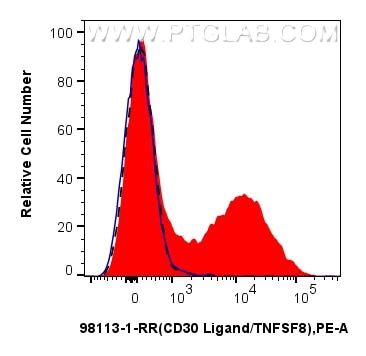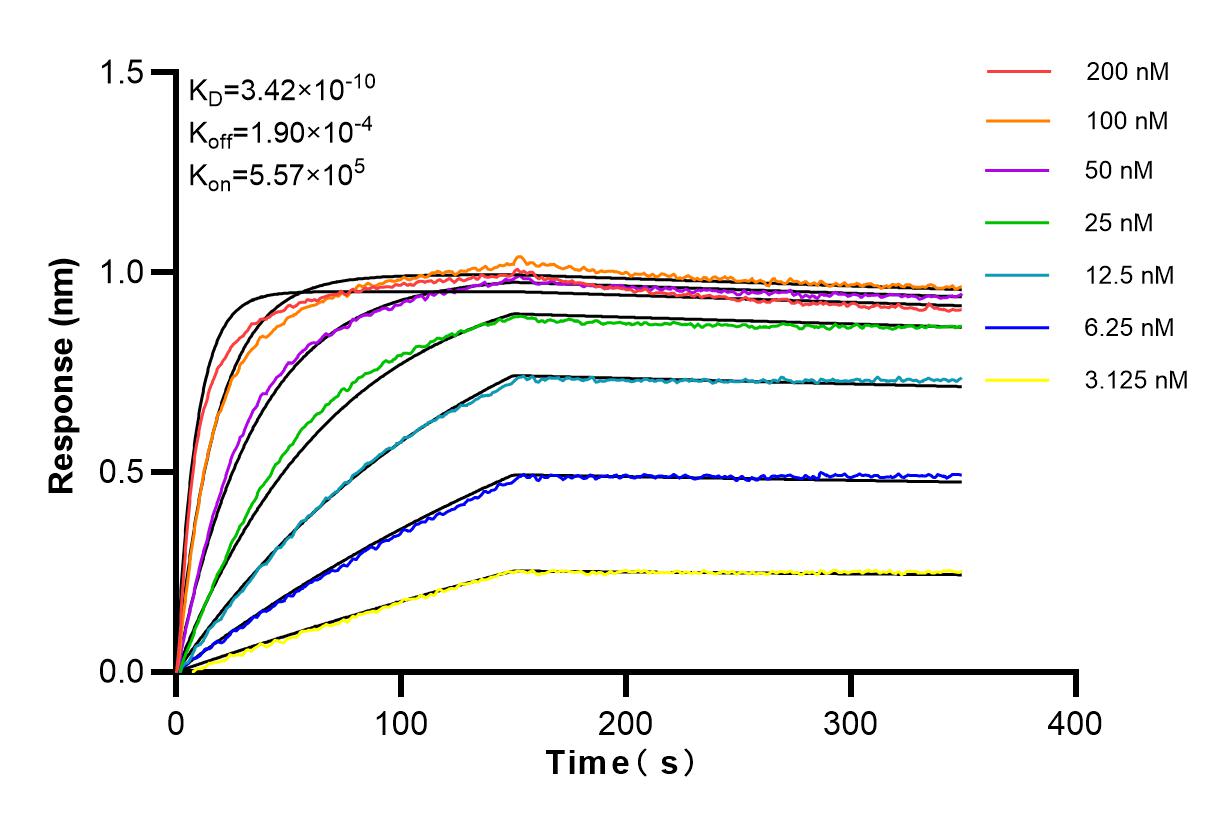Tested Applications
| Positive FC detected in | Anti-CD3/CD28 treated mouse splenocytes |
Recommended dilution
| Application | Dilution |
|---|---|
| This reagent has been tested for flow cytometric analysis. It is recommended that this reagent should be titrated in each testing system to obtain optimal results. | |
| Sample-dependent, Check data in validation data gallery. | |
Product Information
98113-1-RR targets CD30 Ligand/TNFSF8 in FC applications and shows reactivity with mouse samples.
| Tested Reactivity | mouse |
| Host / Isotype | Rabbit / IgG |
| Class | Recombinant |
| Type | Antibody |
| Immunogen | Recombinant protein Predict reactive species |
| Full Name | tumor necrosis factor (ligand) superfamily, member 8 |
| Calculated Molecular Weight | 27 kDa |
| GenBank Accession Number | NM_009403.3 |
| Gene Symbol | Tnfsf8 |
| Gene ID (NCBI) | 21949 |
| RRID | AB_3672260 |
| Conjugate | Unconjugated |
| Form | Liquid |
| Purification Method | Protein A purfication |
| UNIPROT ID | P32972 |
| Storage Buffer | PBS with 0.09% sodium azide, pH 7.3. |
| Storage Conditions | Store at 2 - 8°C. Stable for one year after shipment. |
Background Information
CD30 Ligand (CD30L), also named as TNFSF8 or CD153, is a type II transmembrane protein that belongs to the tumor necrosis factor (TNF) superfamily (PMID: 8391931). It is expressed on the surface of activated T cells, B cells, monocytes, macrophages, eosinophils, neutrophils, and mast cells (PMID: 26090498). CD30L interacts with its receptor, CD30, which is a cell surface protein expressed on a small subset of activated T and B lymphocytes, and a variety of lymphoid neoplasms, with the highest expression in classical Hodgkin lymphoma and anaplastic large cell lymphomas (PMID: 28885612). The CD30/CD30L signaling is involved in pleiotropic downstream effects including differentiation, cell survival and death, NFkB activation, and production of cytokines (PMID: 38534788).
Protocols
| Product Specific Protocols | |
|---|---|
| FC protocol for CD30 Ligand/TNFSF8 antibody 98113-1-RR | Download protocol |
| Standard Protocols | |
|---|---|
| Click here to view our Standard Protocols |







